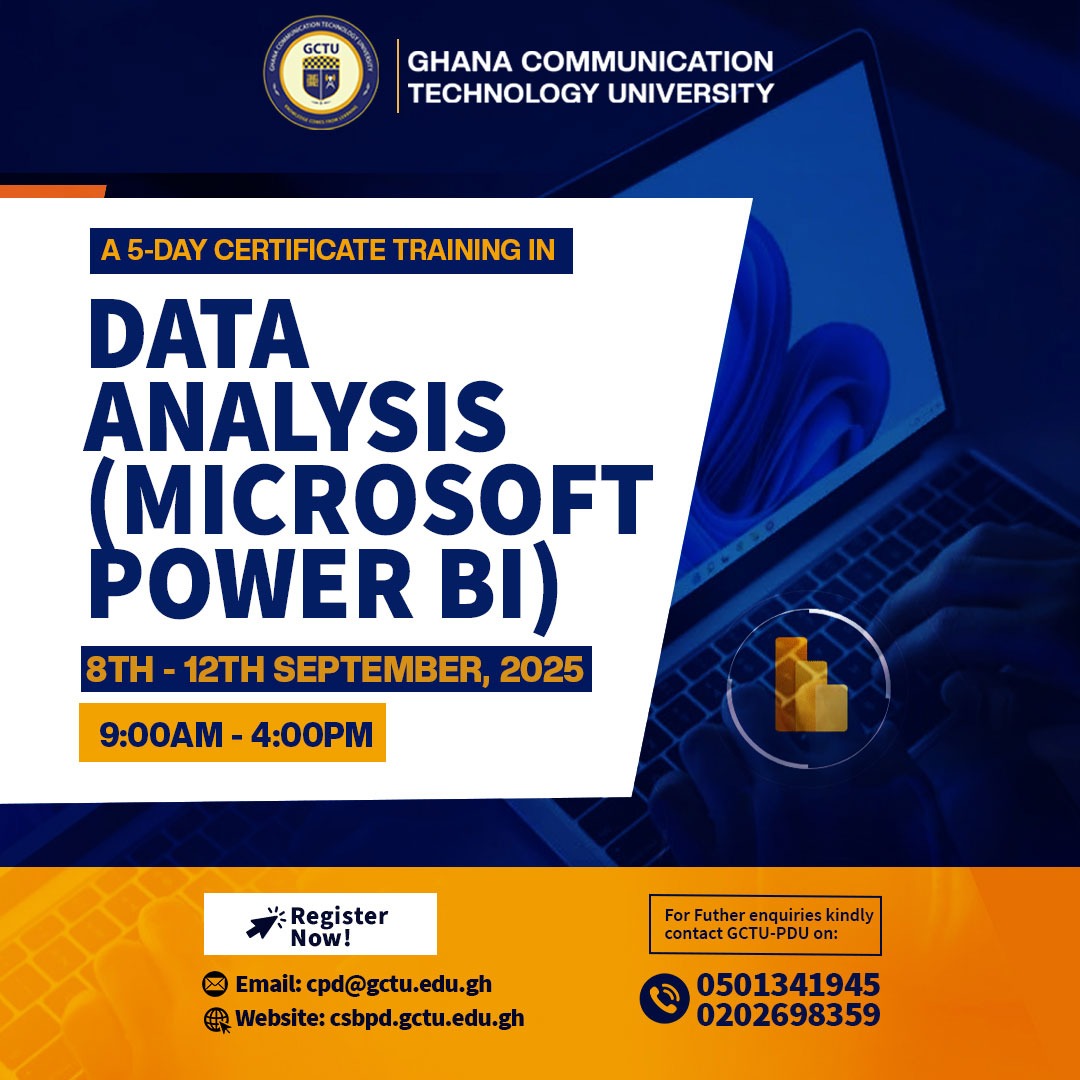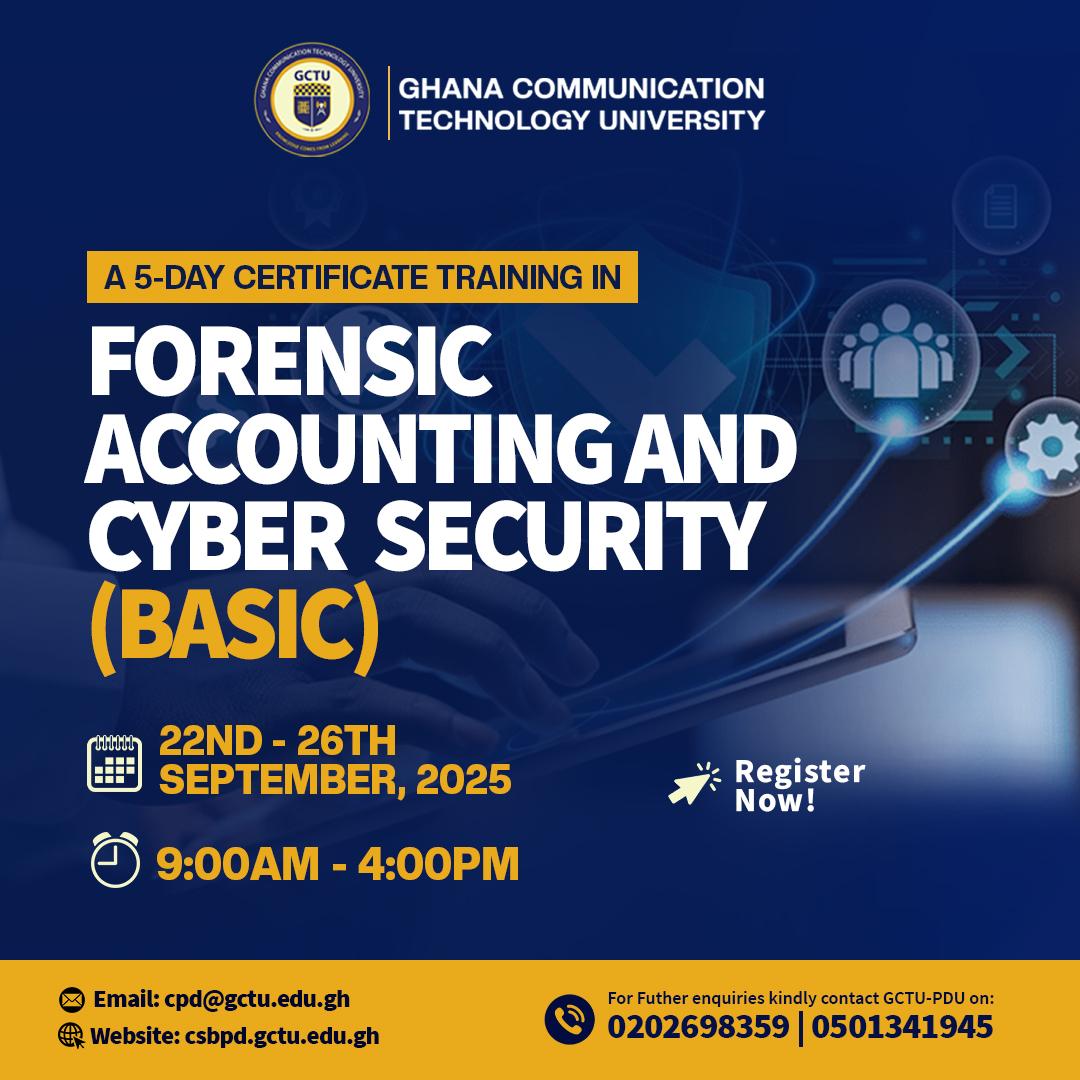The MSc./MPhil. Internet of Things & Big Data programme is aimed at providing advanced training in the field of Internet of Things & Big Data to highly qualified degree holders, allowing graduates to explore both the theoretical and practical skills needed to understand programming and problem-solving in the field of internet of things and big data. The programme is structure to develop the research capacities of graduates and is positioned as a breeding programme for doctoral candidates in emerging computing systems and technologies.
With the MPhil, the emphasis is research and students spend the entire second year in the programme writing an MPhil thesis under supervision. The programme is aimed at graduates who are seeking to develop careers in academic and research institutions or in fields that require teaching and research on IoT & Big Data Technologies.
The Department of Mobile and Pervasive Computing under the Faculty of Computing and Information Systems offers MSc. Internet of Things and Big Data (1 Year) and MPhil. Internet of Things and Big Data (2 Years). Successful applicants admitted into the respective programmes shall be awarded as such.
Programme Durations
- Internet of Things and Big Data: One (1) Year
- Internet of Things and Big Data: Two (2) years.
Applicants who successfully complete the MSc. Internet of Things and Big Data programme have the opportunity to enroll into the MPhil. Internet of Things and Big Data leading to the award of MPhil. Internet of Things and Big Data.
Aims of the Programme
The aim of this programme is to equip graduates with theoretical knowledge and analytical skills for researching and defining solutions to the opportunities and challenges in adopting, implementing and using Internet of Things & Big Data technologies and services within organizations
Objectives
The programme is designed to equip successful students to be able to:
- Analyse, critically evaluate and apply the principles and practices of virtualisation, storage, networking, security and related technologies to Internet of Things & Big Data systems;
- Identify problems or tasks, and design solutions showing a requisite understanding of the need for quality, with appropriate documentation that demonstrates an ability to draw on supporting evidence.
- Train participants to critically research the need, design, adoption and impact of Internet of Things & Big Data systems on organisations, society and the nation;
- Apply industry-standard codes of practice and conduct, including privacy and security protocols in their professional practices.
- Demonstrate understanding and apply ethical, legal and moral principles in the development and use of computing system
- Apply quantitative and qualitative research approaches to address issues related to Internet of Things & Big Data systems/technology adoption and usage;
- Research and present rational, warranted and reasoned arguments that address a range of issues relating to software engineering and Internet of Things & Big Data; and
- Devise programme to support his/her continuing professional development, independently learn, understand, evaluate and apply new knowledge.
Admission Requirements
At the time of application, applicants should possess a Bachelor’s Degree in Information Technology, Computer Science, Computer Engineering, Telecommunication Engineering, Electrical and/or Electronic Engineering, Mathematics, or equivalent qualification from a recognized accredited institution.
A formal interview may be used to determine the ability of all applicants to take and pass courses of the programme.
Foreign Applicants:
All foreign qualifications in Information Technology, Computer Science, Computer Engineering, Telecommunication Engineering, Electrical and/or Electronic Engineering, Mathematics or an IT related Field will be referred to the National Accreditation Board (NAB) for determination of equivalences and eligibility for admission.
Employment Opportunities
Successful graduates will gain requisite skills for employment into public, private organisations and institutions or self-employment as:
- IoT Software Developer
- IoT Product Manager
- IoT Solution Architect
- IoT Research Developer
- Machine Learning Scientist
- IoT Business Process Engineer
- Systems Engineer
- IoT Systems Analyst
- DevOps Engineer
- Analytics & Reporting Specialist




